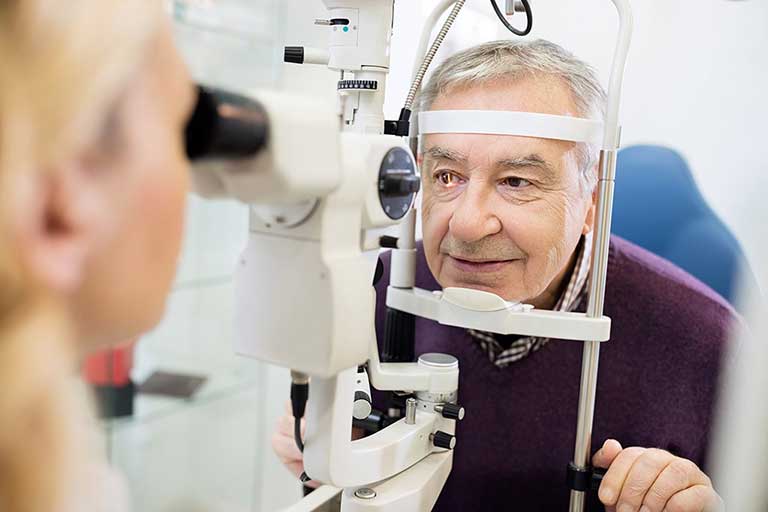Century Park Blog

Glaucoma is one of the main causes of blindness. This month, Glaucoma Awareness Month, Century Park Associates wants to help prevent the progression of this devastating disease by encouraging you to make a resolution to protect your vision.
Glaucoma is a group of eye diseases that, according to the National Eye Institute, “can damage the eye’s optic nerve and result in vision loss and blindness if left untreated. It is one of the leading causes of blindness in the United States.”
There are two main types of glaucoma, primary open-angle glaucoma and angle-closure glaucoma. Open-angle is the most common and is caused by a slow clog of the drainage canals. Closed-angle is the least common, yet most detrimental because the symptoms and damage occur quickly. This type of glaucoma blocks drainage canals and causes a sudden rise in intraocular pressure. If diagnosed with angle-closure glaucoma, urgent treatment is advised.
Glaucoma doesn’t always have early warning signs. It has no leading symptoms and causes no pain. However, early detection through a comprehensive eye exam can be vital in stopping the progress of the disease. The sight-stealing disease is not entirely preventable over time, but understanding the risk and treatment options for delaying progression can help prevent further damage.
Treatment options for delaying progression:
Medications
- Eye drops and/or pills
Surgery
- Laser therapy – option for people with open-angle glaucoma
- Trabeculectomy – surgical procedure to relieve intraocular pressure
- Drainage tubes – small tube inserted to relieve pressure
- Electrocautery – minimally invasive procedure to remove eye tissue and lower eye pressure
According to leading health institutes, everyone is at risk for this disease. However, there are some who are at a higher risk:
- African Americans over age 40
- Everyone 60 and older, especially Hispanics/Latinos
- People with a family history of glaucoma
If glaucoma goes untreated, the damage is irreversible. Over time, vision loss will continue and eventually lead to total blindness. Although, with medical and/or surgical treatment, many do not lose their sight.
Get the facts about glaucoma and schedule a comprehensive dilated eye exam. If you’re already familiar with it, make a resolution to help others slow the progression, and help raise awareness by educating others about glaucoma.
Always consult your doctor before starting any new treatment, exercise program or diet. A health care professional will be able to help you properly decide what kind of treatment will be most beneficial for your individual needs.



